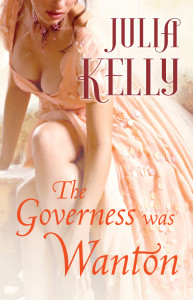 Ask a writer, “Where do you get your ideas?” And you’re just as likely to get blank stares as you are answers. Many of us have no idea where the ideas come from. They just gel somewhere in the back of our subconscious in some mysterious process even we don’t fully understand because if we did you can bet writing would inspire a lot less hair pulling.
If you really want to know where books come from, you’ve got to think of a book like a recipe and ideas like ingredients. You toss a whole bunch of ideas together that you’ve gathered from books, movies, the news, anywhere, and if you’re lucky you wind up with a cake…err…book.
Ask a writer, “Where do you get your ideas?” And you’re just as likely to get blank stares as you are answers. Many of us have no idea where the ideas come from. They just gel somewhere in the back of our subconscious in some mysterious process even we don’t fully understand because if we did you can bet writing would inspire a lot less hair pulling.
If you really want to know where books come from, you’ve got to think of a book like a recipe and ideas like ingredients. You toss a whole bunch of ideas together that you’ve gathered from books, movies, the news, anywhere, and if you’re lucky you wind up with a cake…err…book.
I have no idea where my new Governess series came from, but I can tell you exactly where I was when it sparked. I used to take the 6 train up to the South Bronx every morning to get to my old job. It was an unusually cold day in late October, and I was worrying about what I’d do for NaNoWriMo. Like any good writer, I was armed with my trusty notebook and a pen, ready to write. I just needed an idea.
I got off of the train and headed above ground to wait for the bus that would take me last few miles to work. I probably hunched down into my coat because I’m always cold from October until April. Then, for whatever reason, an idea struck me. What if I wrote a book about a governess?
 I love dukes and duchesses and all of the shenanigans they get up to in romance novels, but for a long time I’ve been wanting to change up that story. I've always been fascinated by women who lived on the fringes of respectability in Victorian England. Governesses, doctors, teachers, spinsters, small business owners. All of these women were different because all of them did something a woman wasn’t supposed to during this era: they earned their own money.
I love dukes and duchesses and all of the shenanigans they get up to in romance novels, but for a long time I’ve been wanting to change up that story. I've always been fascinated by women who lived on the fringes of respectability in Victorian England. Governesses, doctors, teachers, spinsters, small business owners. All of these women were different because all of them did something a woman wasn’t supposed to during this era: they earned their own money.
But despite my fascination with governesses I knew that I couldn't write just one book and call it a day. With my agent’s very sound business advice to think in series in mind, I began to sketch out basic plot lines for two other governess stories. I gave the heroines the names—Elizabeth, Mary, and Jane—that they would go to publication with. I gave them each a different kind of hero (their men’s names didn’t stay the same). By the time the bus pulled up, I had the kernel of an idea.
I kept working and working at my first governess book until I finished a draft and sent it off to beta readers. It came back bleeding with comments, but there was something in it that seemed worth pursuing so I kept at it. Little by little, a draft emerged. My agent was interested. I wrote my scribbled notes for Mary and Jane’s books into synopses. I rewrote those synopses many, many times, learning and re-learning what would make for a good, sellable book. If I wanted to be a writer who could eventually sell on proposal,
Finally the full first book and two subsequent synopses went out on submission, and a couple months later my governesses found a home and a wonderful editor.
 Now that the books are launching this fall, it’s strange to think about the fact that it all started because I was standing at a busy bus stop in the middle of the Bronx, trying to get to work and scrambling to come up with a NaNoWriMo book idea.
Now that the books are launching this fall, it’s strange to think about the fact that it all started because I was standing at a busy bus stop in the middle of the Bronx, trying to get to work and scrambling to come up with a NaNoWriMo book idea.
If you want to write, I may not be able to tell you where to find ideas of your own any more than I can tell you how I come up with mine, but I can give you these two pieces of advice: keep an open, curious mind and never travel without a notebook.
From now until 9/30 I'm giving away two huge prize packs to celebrate the release of The Governess series. Enter to win below!









